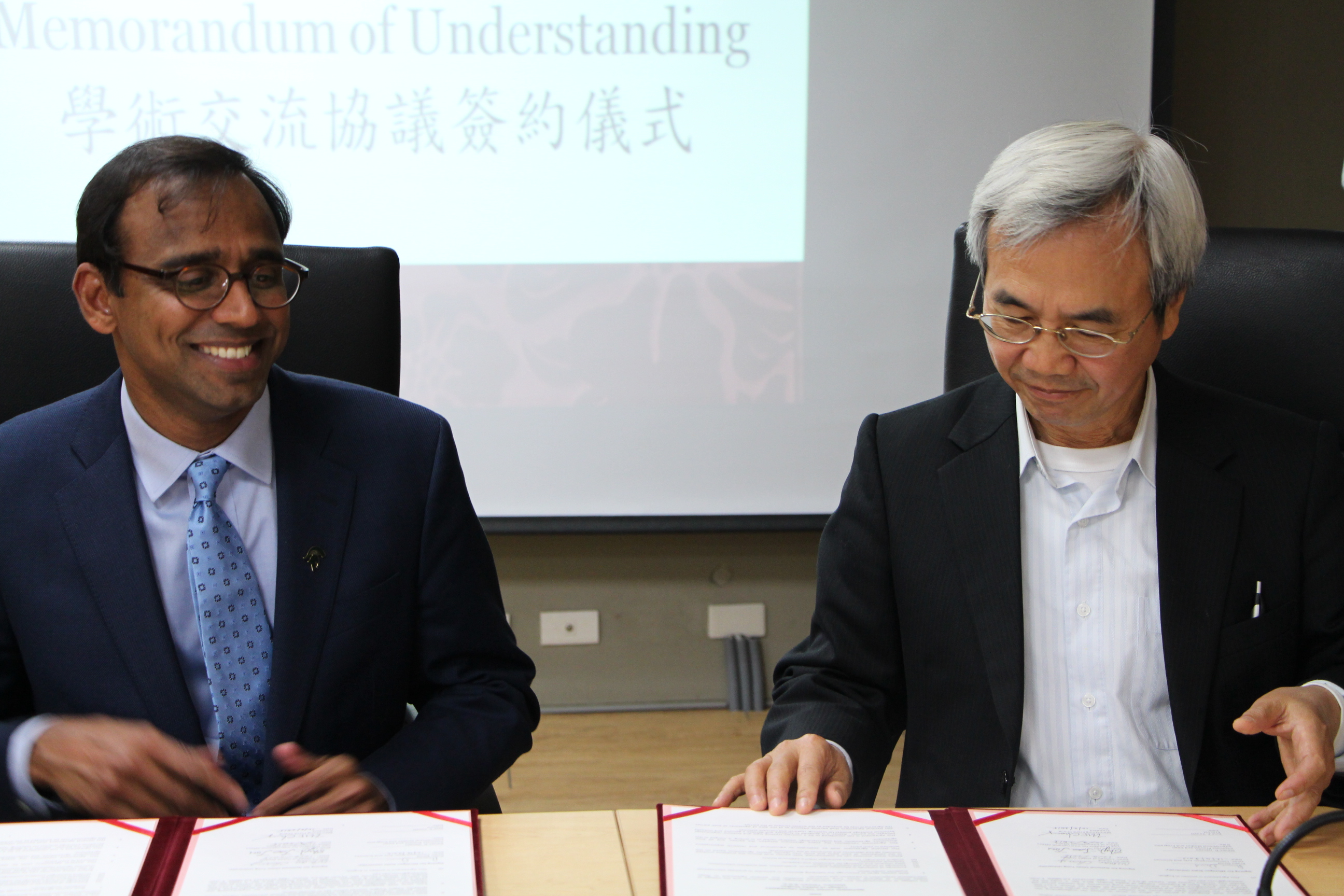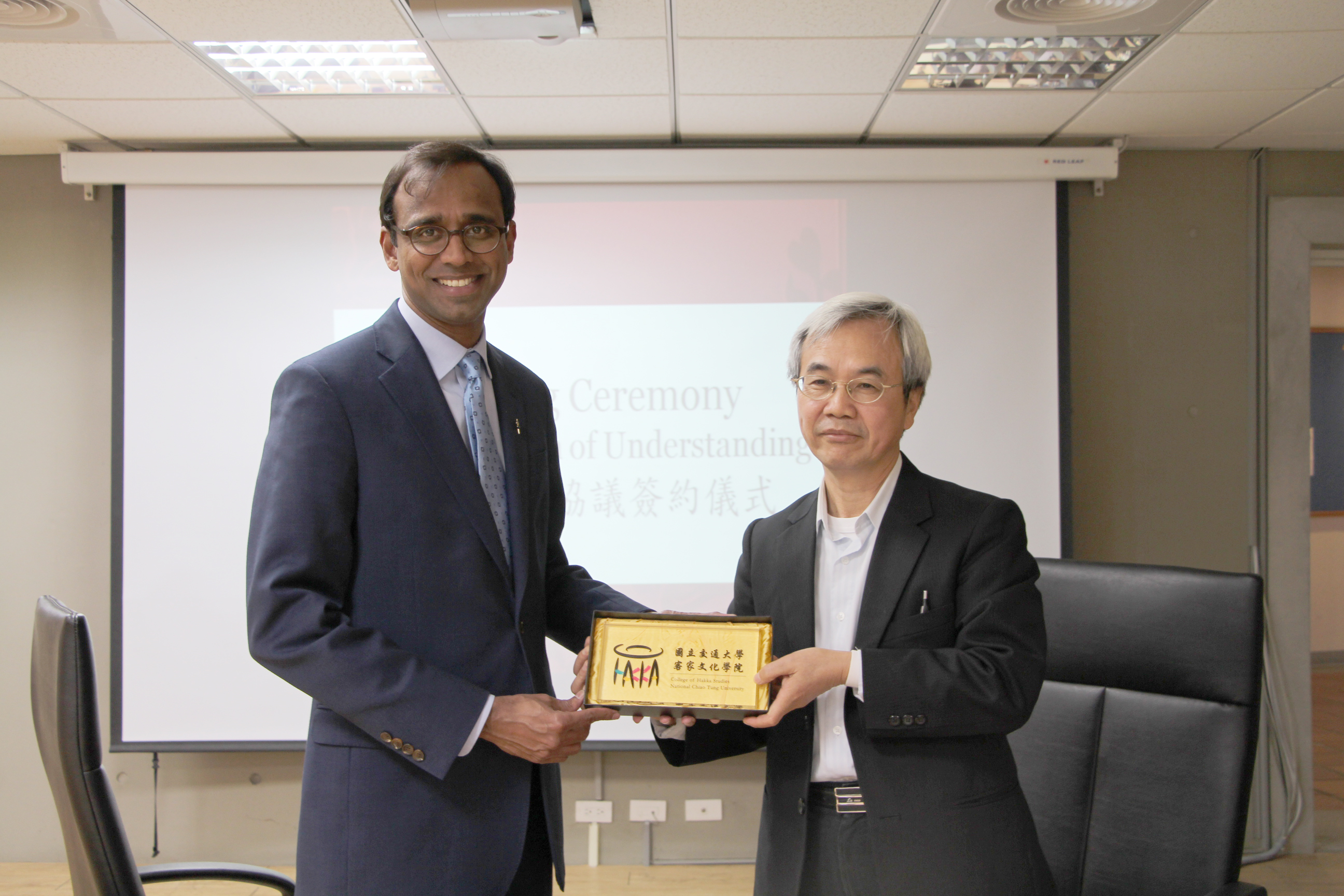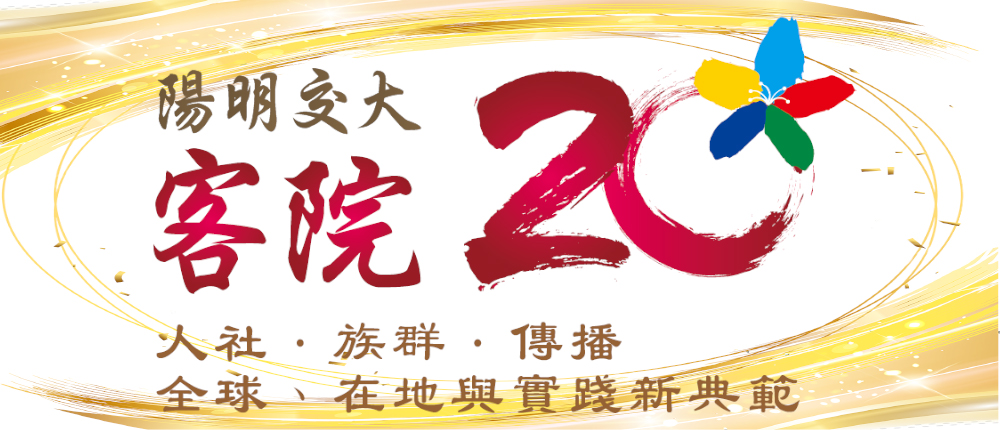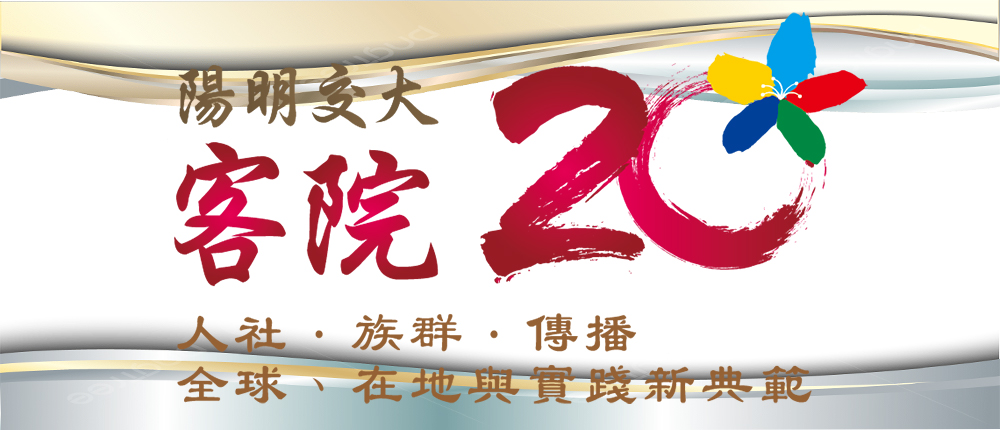A memorandum of understanding (MOU) between the College of Hakka Studies at National Chiao Tung University (NCTU) and the College of Communication Arts and Sciences at Michigan State University (MSU) was officially signed by representatives of both sides, Prof. Wei-An Chang and Prof. Prabu David, on December 4, 2015. More academic exchange/cooperation and student exchange between both sides will be expected in the future, building a bridge of international exchanges for NCTU.

Signing the agreement Exchange and prospect
Chang, Dean of the College of Hakka Studies at NCTU, said that this is a long-awaited event, and that he is sincerely looking forward to the academic and technical exchanges between both sides. David, Dean of the College of Communication Arts and Sciences at MSU, stated that MSU is a “land-grant university” benefited from the land reform act, and emphasized that MSU promotes not only academic development, but also the public welfare. The president of MSU hopes that the university has a heart of “Land Grant” to serve the public, and a vision of “World Grant” that extends beyond its nation.
David believes that Taiwan is definitely included in the vision of “World Grant”. Connecting with Asian countries is an important part of communication studies, and a global trend, too. He also mentioned that there will be two exchange students from the Institute of Communication Studies at NCTU going to his college, and that he hopes they are just a small fraction of the many exchange students to come in the future. He thinks that this is another good chance for MSU to see the world, and the beginning of future cooperation.
Taiwan-U.S. cooperation Enhance mutual understanding
The cooperation between the two colleges began at the annual academic conference held by the International Communication Association in Puerto Rico last year. Prof. Chen-chao Tao from Department of Communication and Technology at NCTU invited David, who has many advisees in Taiwan, to pay Taiwan a visit. That is how this opportunity was created. MSU has a great reputation in the field of communication, but David believes that in a closely linked international community “big or small” is not the primary consideration in terms of exchange. Due to the close linkage, the United States and western societies need to understand the conditions in Asia. Taiwan is a trend leader in the particular areas, and Department of Communication and Technology at NCTU thus become one of their good exchange partners.
David expects that the exchange of outstanding students and academic cooperation, such as technical exchanges and research, will contribute to the combination of specialties of both sides and mutual learning. Cultural shock and cultural convergence will be inevitable in the future. For example, Americans focus on individualism and personal achievements, while Asians place more emphasis on cooperation. Taiwan has some cutting-edge studies (e.g. the world-leading eye movement studies), and both sides can learn and grow in the process of interaction.

In the MOU signing ceremony, NCTU presented David with a specially prepared glass ornament with the letters of College of Hakka Studies as well as books and journals, hoping for a long-term development in the exchange between both sides on all levels. On behalf of MSU, David also promised closer cooperation in the future.










